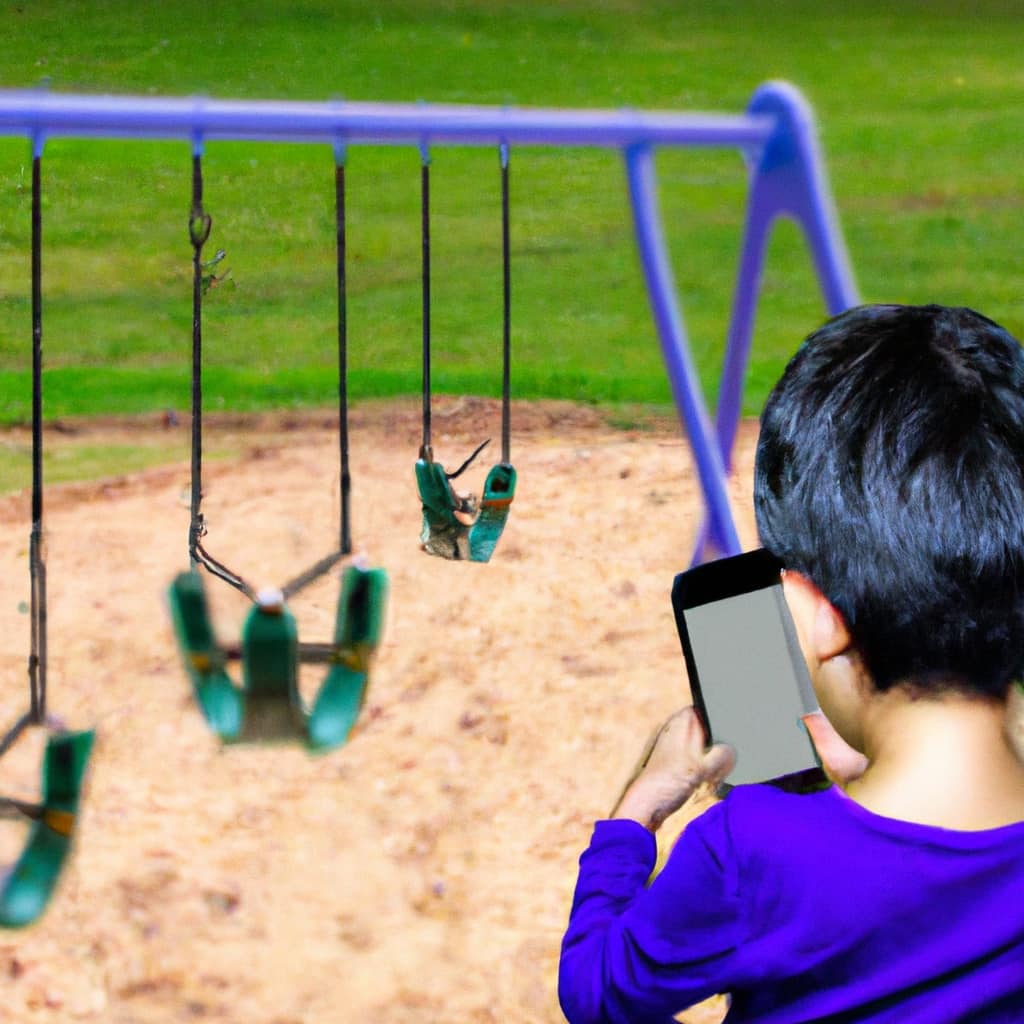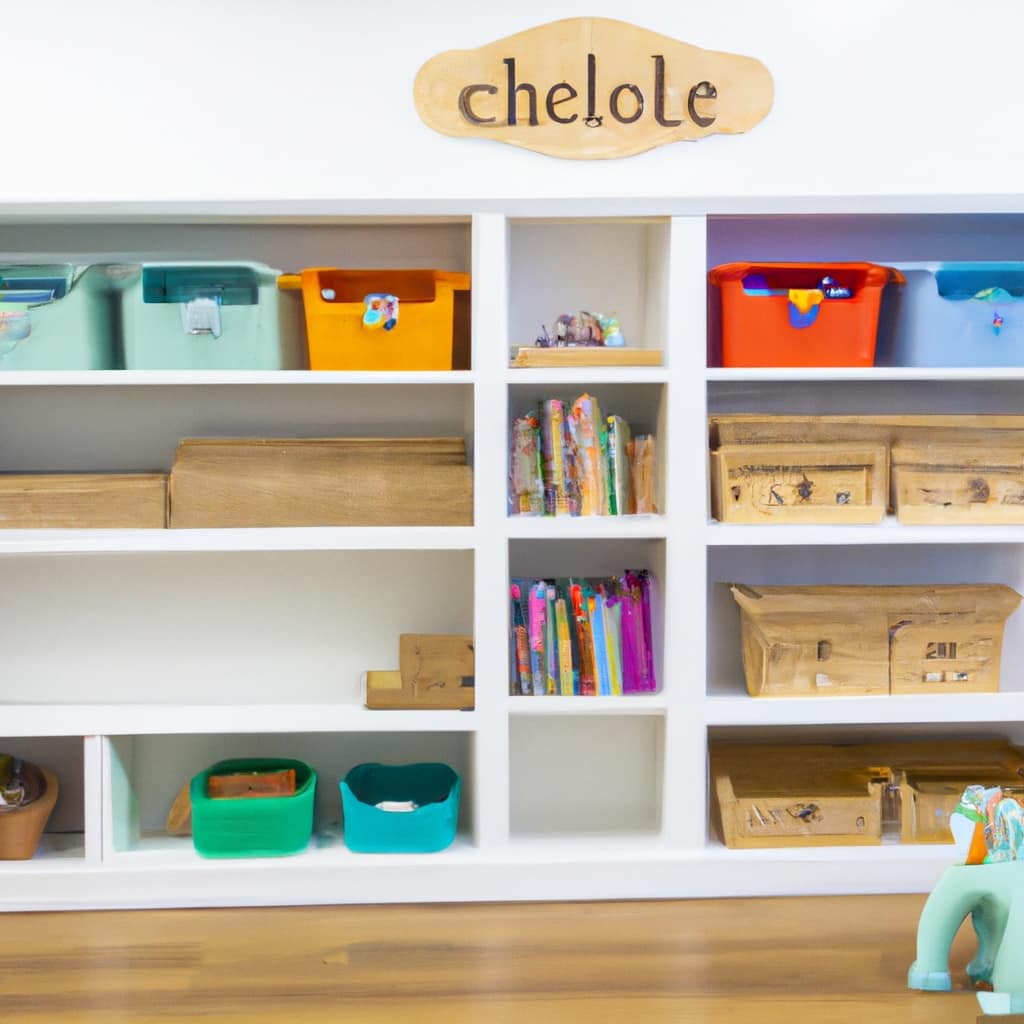As a strong supporter of Montessori education, I firmly believe that its advantages extend beyond older children. The fundamental principles of this approach can greatly improve the development and learning of even the youngest learners.
By creating a prepared environment and providing developmentally appropriate toys and materials, we can nurture independence and foster intrinsic motivation in infants. Research has shown that this approach has a positive impact on their overall development, from cognitive and social-emotional skills to language and communication abilities.
So, let’s explore the benefits of Montessori’s approach to infant development and play.
Key Takeaways
- Montessori principles benefit infant development, allowing them to foster intrinsic motivation and self-directed learning.
- Creating a prepared environment for newborns is essential, focusing on promoting exploration and independence through developmentally appropriate toys and materials.
- Choosing developmentally appropriate toys and materials, such as open-ended toys and nature-based materials, supports infants’ cognitive, physical, and social development, fostering a deeper connection to the world and nurturing curiosity.
- Nurturing independence in infants by promoting self-care skills and autonomy builds confidence and life skills, leading to higher cognitive and social-emotional development scores in Montessori-inspired environments.
The Benefits of Montessori Principles for Infant Development
I believe that Montessori principles offer numerous benefits for the development of infants.
One significant benefit is the promotion of intrinsic motivation. Montessori education emphasizes creating an environment that fosters a love for learning that comes from within. By allowing infants to explore and engage in self-directed activities, they develop a sense of curiosity and a desire to learn independently. This intrinsic motivation lays a strong foundation for their future learning journey.
Additionally, Montessori principles have a positive impact on self-regulation skills. Infants in Montessori-inspired environments are given the freedom to make choices and engage in activities at their own pace, which helps them develop skills such as concentration, problem-solving, and impulse control. Research shows that these self-regulation skills contribute to higher cognitive and social-emotional development in infants.
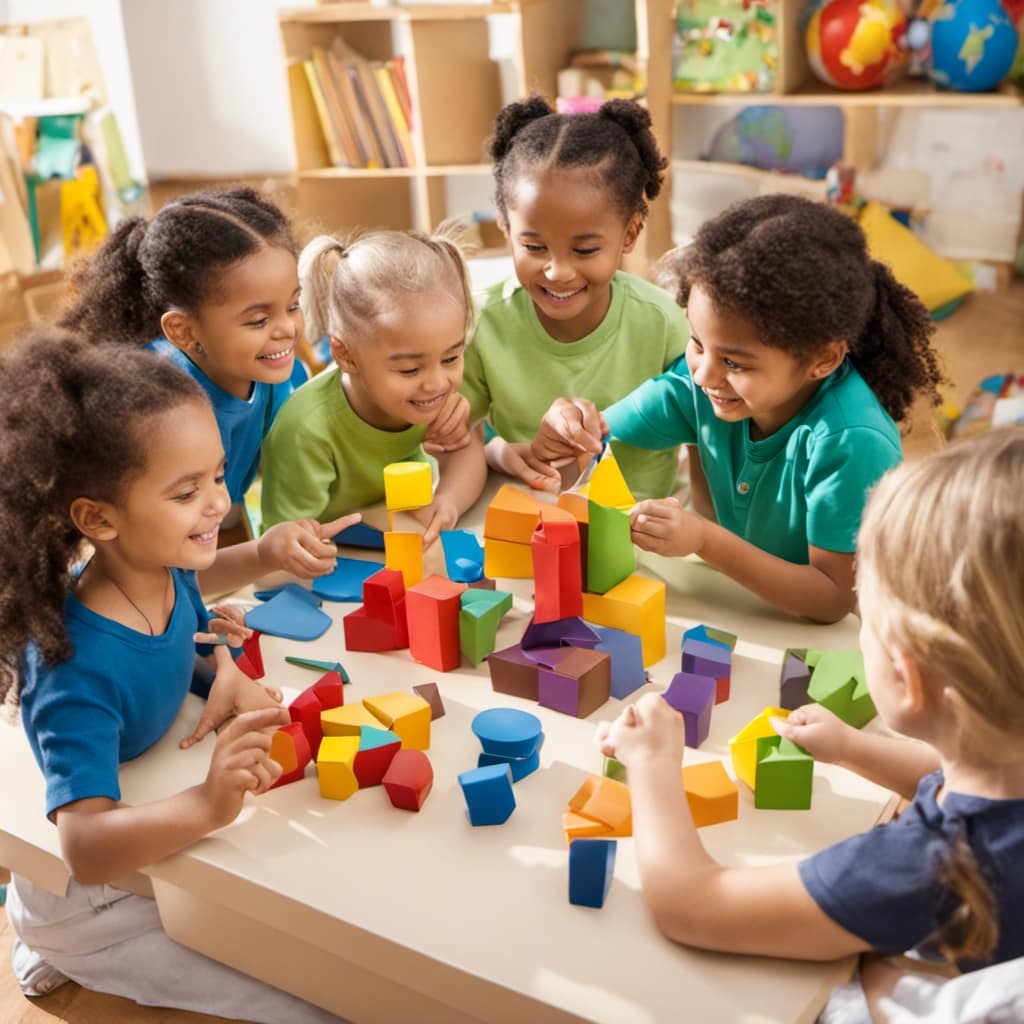
Creating a Prepared Environment for Newborns
Creating a safe and conducive space for newborns includes focusing on promoting exploration and independence. By creating a prepared environment, we can provide the necessary tools and materials to support their development. Here is a table that showcases developmentally appropriate toys and materials that can be included in the newborn’s environment:
| Toys and Materials | Purpose | Benefits |
|---|---|---|
| Mobiles with contrasting colors | Stimulate visual development and focus | Enhances cognitive skills and concentration |
| Soft rattles for grasping | Encourage fine motor skills and hand-eye coordination | Develops physical abilities and coordination |
| Wooden blocks | Promote problem-solving and creativity | Enhances cognitive and imaginative skills |
| Sensory balls | Provide tactile stimulation and sensory exploration | Supports sensory integration and motor skills |
| Soft fabric animals | Encourage social interaction and imaginative play | Fosters cognitive, emotional, and social development |
Developmentally Appropriate Toys and Materials for Infants
Incorporating developmentally appropriate toys and materials is crucial for fostering the growth and learning of infants. Here are four reasons why it is essential to provide infants with toys and materials that are suitable for their age and stage of development:
-
Stimulating Senses: Nature-based materials, such as wooden blocks and sensory balls, provide infants with sensory-rich experiences. These materials engage their senses of touch, sight, and sound, promoting cognitive and physical development.
-
Promoting Creativity and Problem-Solving: Open-ended toys, like soft fabric animals, allow infants to explore their imagination and develop problem-solving skills. These toys encourage creativity and independent play, fostering self-directed learning.
-
Nurturing Curiosity: Nature-based toys create a deeper connection to the natural world, sparking infants’ curiosity. By incorporating materials like natural textures and colors, we can nurture their innate desire to explore and discover.
-
Supporting Social Development: Developmentally appropriate toys and materials encourage social interaction and cooperation. Infants can engage in play with others, developing important social skills from an early age.
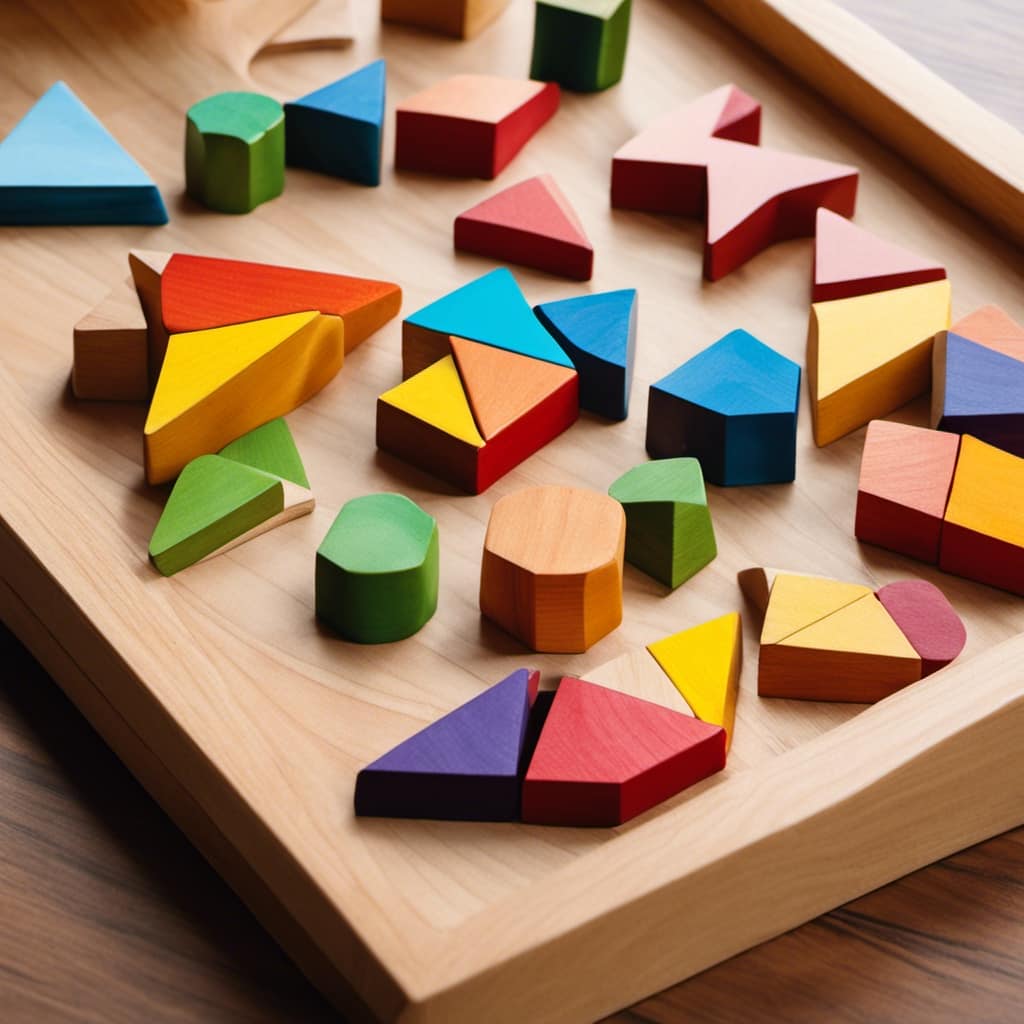
Nurturing Independence in Infants
Fostering independence in infants builds confidence and life skills. Encouraging self-help skills and promoting independent play are essential for their development. By allowing infants to feed themselves and make choices, we are nurturing their autonomy and promoting self-care skills.
Research shows that independence in early childhood promotes competence and autonomy later in life. Providing a safe and supportive environment is crucial in nurturing independence. Building confidence through independent play is also important.
The Effectiveness of Montessori Principles in Infant Development
I’ve seen firsthand the positive impact of Montessori principles on infants’ cognitive and social-emotional development. The effectiveness of Montessori principles in infant development is evident in several key areas:
-
The impact of Montessori-inspired environments on infant language skills: Montessori education emphasizes language-rich environments, with teachers engaging in meaningful conversations and introducing vocabulary through interactions and activities. This exposure to language at an early age helps infants develop strong communication skills.
-
The role of intrinsic motivation in Montessori-inspired infant learning: Montessori principles focus on fostering intrinsic motivation and self-directed learning. By allowing infants to choose their activities and explore at their own pace, they develop a love for learning that comes from within. This intrinsic motivation drives their engagement and promotes a lifelong love for learning.
-
Montessori practices contribute to improved cognitive and social-emotional development in infants. Studies have shown that infants exposed to Montessori-inspired environments exhibit higher cognitive and social-emotional development scores compared to traditional educational settings.

-
Montessori-inspired environments promote a sense of order and concentration in infants. The prepared environment in Montessori classrooms provides structure and organization, which allows infants to focus and concentrate on their chosen activities. This concentration enhances their cognitive development and prepares them for future learning experiences.
Promoting Exploration and Independence in Infants
As we continue exploring Montessori’s approach to infant development and play, it is important to highlight the significance of promoting exploration and independence in infants.
Through sensory exploration, infants engage with the world around them, fostering their cognitive and physical development. Encouraging free play allows infants to follow their natural curiosity and develop problem-solving skills.
In a Montessori-inspired environment, toys and materials are carefully selected to stimulate the senses and support infants’ overall development. Nature-based materials, such as wooden blocks and sensory balls, provide sensory-rich experiences. These open-ended toys promote creativity, imagination, and social interaction.
By nurturing independence, infants build confidence and life skills. Allowing them to feed themselves and make choices fosters autonomy and self-care skills. Research shows that promoting independence in infants leads to higher levels of competence and autonomy.
Incorporating the principles of promoting sensory exploration and encouraging free play in a Montessori environment sets a strong foundation for infants’ development and lifelong love for learning.
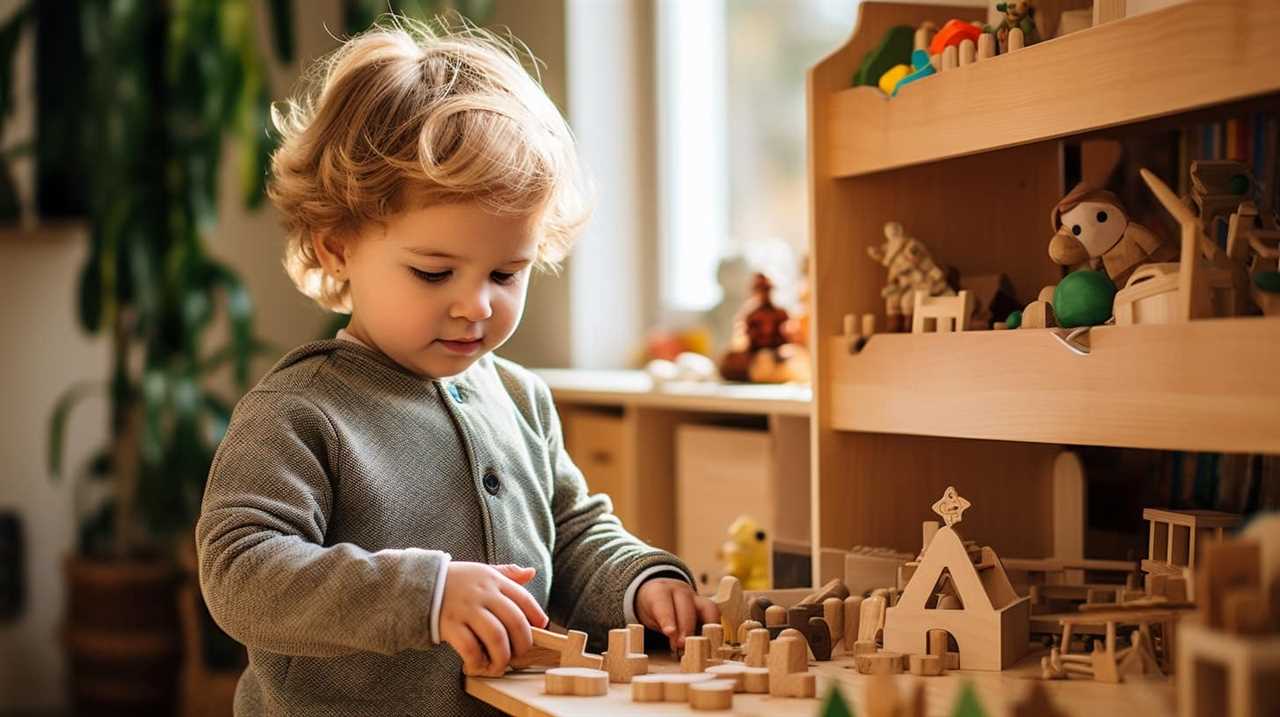
Choosing Toys That Support Cognitive and Physical Development
By carefully selecting toys that support cognitive and physical development, we can provide infants with engaging and educational play experiences. Here are four key points to consider when choosing developmentally appropriate toys and sensory-rich materials for infants:
-
Age and stage: Select toys that are suitable for your child’s age and development level. This ensures that they are both challenging and achievable, promoting growth and learning.
-
Open-ended play: Opt for toys that encourage creativity, imagination, and problem-solving skills. Open-ended toys, such as building blocks or sensory balls, allow infants to explore and engage in endless possibilities.
-
Nature-based materials: Incorporate toys made from natural materials, like wooden blocks or soft fabric animals. These provide sensory-rich experiences and stimulate the senses of touch, sight, and sound.
-
Cognitive and physical development: Look for toys that promote cognitive skills, such as puzzles or shape sorters, as well as physical development, like toys that encourage grasping or crawling. These toys help infants develop important cognitive and motor skills.
Fostering Autonomy and Self-Care Skills in Infants
Fostering autonomy and self-care skills in infants involves providing a safe and supportive environment that encourages independent decision-making and self-sufficiency. Promoting self-care skills from an early age helps build confidence and a sense of competence in infants.
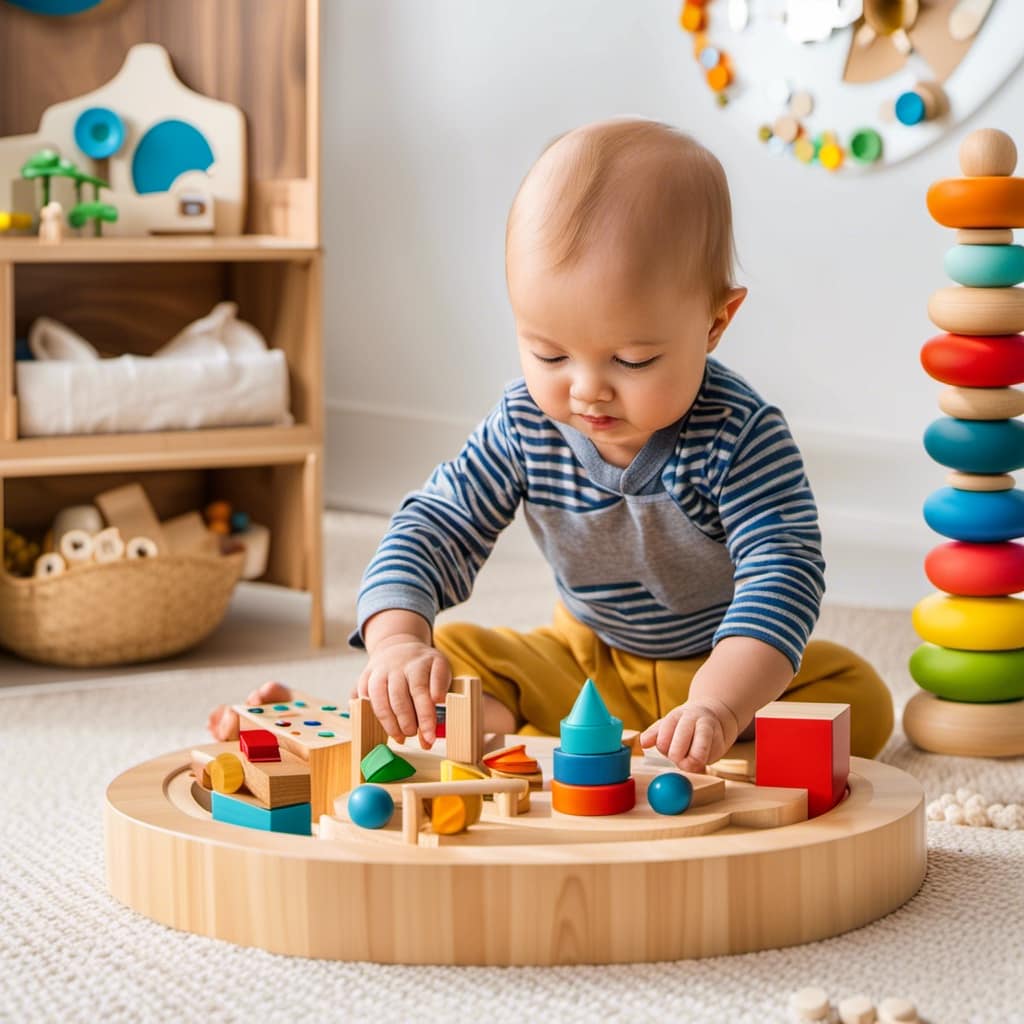
By allowing infants to feed themselves and make choices, they develop crucial life skills and a sense of independence. Research shows that autonomy promotes their overall development.
It is important to create a positive and nurturing environment that supports their exploration and decision-making abilities. Providing developmentally appropriate toys and materials, such as open-ended toys and nature-based materials, further promotes their cognitive, physical, and social development.
The Impact of Montessori-Inspired Environments on Infant Development
Creating an environment that follows Montessori principles has a positive impact on the overall development of infants. The role of caregivers in Montessori-inspired environments is crucial in providing the necessary support and guidance. Here are four ways in which Montessori-inspired environments impact infant development:
-
Sensory Rich Experiences: Montessori environments prioritize sensory-rich experiences, which stimulate infants’ senses and contribute to their cognitive, physical, and social development. Caregivers can provide a variety of nature-based materials, such as wooden blocks and sensory balls, to promote exploration and curiosity.
-
Independent Exploration: Montessori principles focus on promoting independence and self-directed learning. Caregivers play a vital role in creating a safe and conducive space for infants to explore and discover their surroundings.
-
Language and Communication Skills: Montessori-inspired environments contribute to improved language and communication skills in infants. Caregivers can engage in meaningful conversations, read books, and provide language-rich experiences to foster language development.
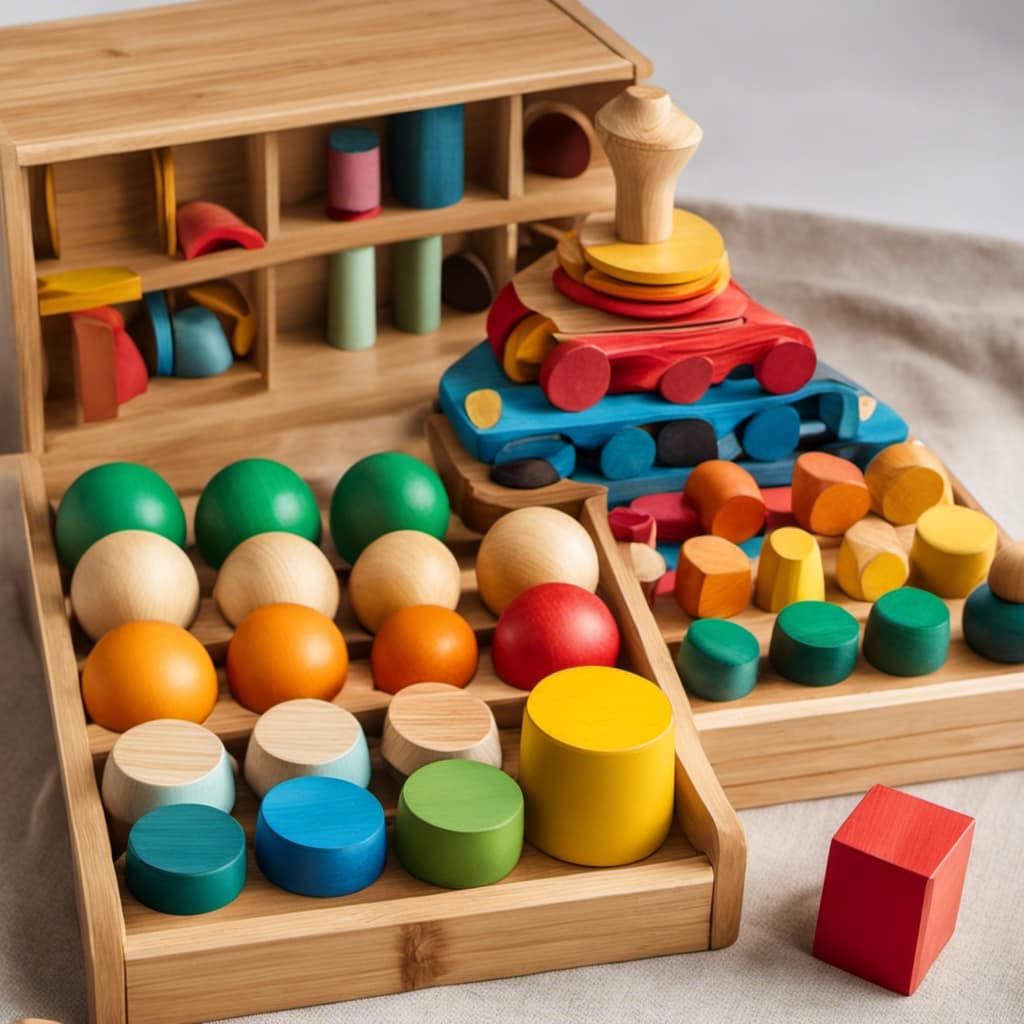
-
Emotional Development: Montessori practices support infants’ emotional development by providing a sense of order and concentration. Caregivers can create a calm and organized environment, allowing infants to develop self-regulation skills and emotional resilience.
Frequently Asked Questions
What Are the Key Principles of Montessori Education for Infants?
The key principles of Montessori education for infants include creating a prepared environment that promotes exploration and independence. This involves providing developmentally appropriate toys and materials that stimulate their senses and support their cognitive and physical development.
How Does a Prepared Environment Benefit Newborns?
A prepared environment benefits newborns by providing a safe and stimulating space for their development. It promotes exploration, independence, and the use of developmentally appropriate toys and materials that support cognitive and physical growth.
What Are Some Examples of Developmentally Appropriate Toys for Infants?
Developmentally appropriate toys for infants include sensory balls, wooden blocks, and soft fabric animals. These toys promote cognitive, physical, and social development, fostering hands-on learning and benefiting the child’s overall development.
How Does Fostering Independence in Infants Promote Their Overall Development?
Fostering independence in infants promotes their overall development. It builds confidence and life skills, promotes self-care and autonomy, and research shows it enhances competence and autonomy. Providing a safe environment is crucial.
What Are Some Specific Ways in Which Montessori Principles Positively Impact Infants’ Language and Communication Skills?
Montessori language activities and communication strategies positively impact infants’ language and communication skills. These include incorporating sensory-rich materials, providing opportunities for social interaction, and fostering a language-rich environment.

Conclusion
In conclusion, it’s clear that Montessori’s approach to infant development and play is highly effective. By creating a prepared environment and providing appropriate toys and materials, we are setting our little ones up for success. Additionally, by nurturing independence, we are helping them develop important skills. Research supports this approach, showing that it leads to higher cognitive and social-emotional development scores, stronger self-regulation skills, and improved language and communication skills. So, let’s give our infants the gift of exploration, autonomy, and a sense of order. Montessori for the win, folks!


